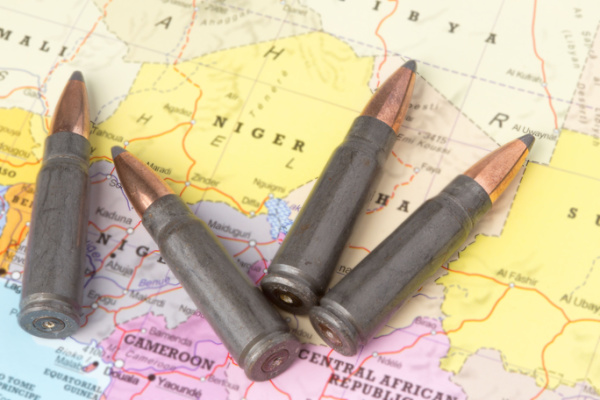The Niger Coup and Turkey’s Military Industrial Complex in Africa
By Michaël Tanchum
August 23, 2023
The recent military coup in Niger marks the point of no return for the unraveling of France’s dominant economic and military influence across West Africa. Turkey is the foreign actor that stands to benefit most, with the potential to emerge as a leading strategic partner for the nations of the region. Turkey’s engagement with West Africa is a unique, dual approach that blends military and economic engagement while deftly intertwining humanitarian aid and cultural outreach. Ankara has already become a significant provider of weapons systems and military training while Turkish firms concurrently have been creating a commercial architecture of integrated manufacturing activity stretching from the Central Maghreb to coastal West Africa. As the interior territory within this architecture, the landlocked, Sahel nations of Niger, Mali, and Burkina Faso, each now ruled by a military junta, present both challenges and opportunities for the advancement of Turkey’s ‘military industrial complex’ in West Africa.

Power over Policy: Erdoğan’s Overthrow of Davutoğlu
By Gareth H. Jenkins
May 11, 2016
Ahmet Davutoğlu has left as he came, not in response to popular demand but at President Erdoğan’s behest. Apparently unsighted by his unfailing self-belief, Davutoğlu was caught unprepared when Erdoğan made his move. The overthrow of Davutoğlu has demonstrated the naivety of the EU’s policy of appeasement. The EU officials believed that by focusing on Davutoğlu, they were strengthening him politically as a counterweight to Erdoğan. This may have been naïve, self-serving or both. It was certainly not true. But it did reinforce Erdoğan’s suspicions of Davutoğlu.




